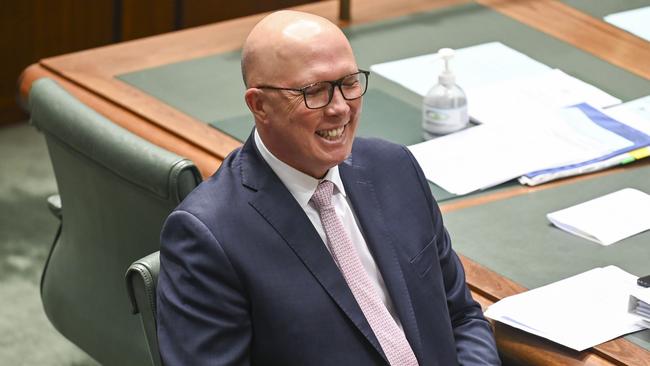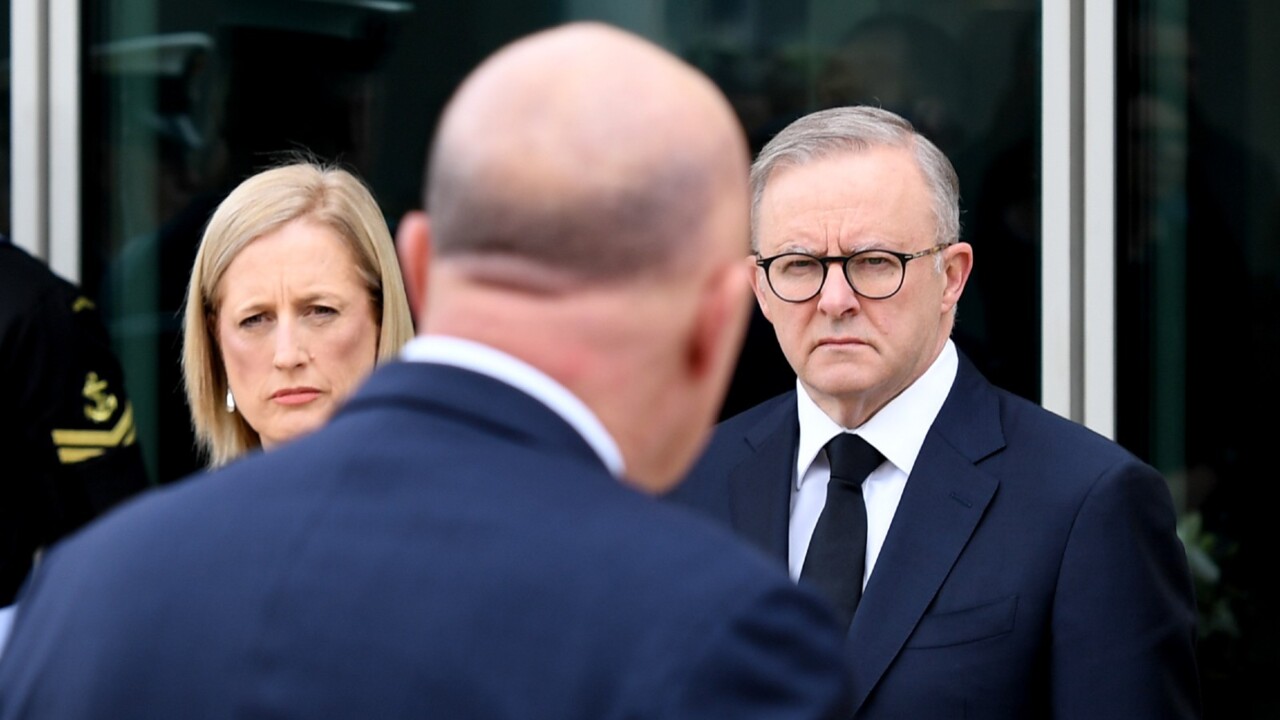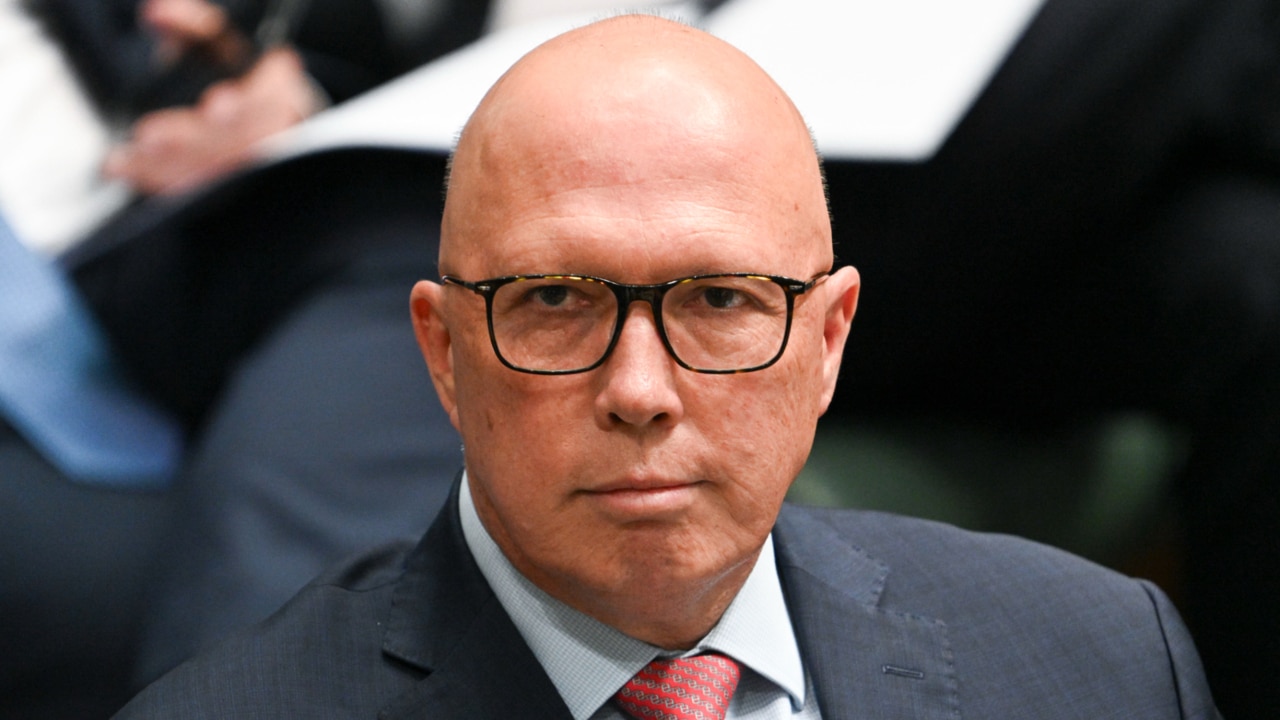
Peter Dutton has made a deliberate and dramatic play to inject himself into a cost-of-living debate that appears to have fallen on deaf ears in Canberra.
For the Liberal leader, the divestiture threat for the big grocers is a no-brainer. For Anthony Albanese it is a nod to Marxism.
Not only is this the most absurd thing to have been uttered by a Labor prime minister, notwithstanding Albanese’s own ideological predilection, it undermines a long standing free-market restraint that the rest of the Western world came to long ago.
As far as barbecue stoppers go, food prices are almost unrivalled as a source of fury for any household – low income or otherwise.
Dutton can be accused of populism. But the reasoning, and market-based precedent, is sound. In an Australian context, it is also not before time. Free marketeers confuse the debate with free enterprise. When it comes to the politics – which is confined to household duress – this is the Coalition trying to split the political class along obvious divisions.
There are those who stand with the consumer, farmer and small business entrepreneur, and those who seek to align themselves with the Business Chamber of Australia.
But it only works as a wedge for Labor as long as Dutton can divorce the Coalition from any alliance with the Greens.
And this makes it tricky for the Coalition to try to introduce a Senate bill before the election, lest the Greens actually back it.
And considering such a bill would never pass the house, it begs the question as to what Dutton’s strategy is other than to ventilate a legitimate thought bubble.
But the notion that this is a betrayal of the free market is to misunderstand, or at least conflate, the Liberal Party’s foundational principles.

And to suggest Angus Taylor was rolled on this issue is absurd. Not only was Taylor the architect of the big-stick approach to driving down energy prices in government, his entire academic career was devoted to the study of divestiture. As a Masters student at Oxford University, Taylor’s thesis was based on Margaret Thatcher’s breaking up of the big British brewers who were manipulating the market to drive small brewers out.
The politics of that were small-business Thatcherism to the core. The conservative tradition was standing up for the little guy.
As a philosophy, this was also Menzian to its bootstraps.
The myth that the Coalition has been traditionally aligned to the big end of town was one that has been successfully perpetrated by the left for decades. While John Howard was polite to the pinstripe brigade, his political instincts were anything but.
Tony Abbott continued that tradition of civility. Scott Morrison, on the other hand, was openly hostile. Don’t forget, he was the one as treasurer who gleefully slapped a levy on the banks.
Since then, corporate Australia’s wokism has further alienated the Coalition and the spivs.
The very tenet of Liberal ideology is free enterprise – not to be confused with corporate free market abuse. It is stands against monopolies and oligopolies. Dutton’s approach is entirely consistent with this. Menzies was famously sceptical of big business.
But ask any focus group of voters, and most will attest to a belief that they equate the Liberals with the big end of town.
Never mind that Labor has its own special penchant for corporatisation – it loves big unions, wants to be loved by big business and actively seeks to make big bureaucracy bigger.
Dutton will welcome the big end of town lining up against him as he goes after Coles and Woolworths. There is no great community love for the oligarchy.
The BCA, after all, backed the voice referendum.

A second myth now arises from this reported outbreak of dissent within the Coalition partyroom.
The policy sailed through shadow cabinet before being strongly endorsed by the Liberal Party’s backbench committee.
Most Coalition MPs will attest to a reasonably sedate debate on it during the partyroom on Tuesday.
The voices of dissent, led by the exiled NSW MP Alex Hawke, have more to do with internal politics and the desire to whack Taylor around the head than they do the policy itself.
Hawke has his own issues, and most relate to the reasons why he was relegated to political purgatory in the first place.
That said, Dutton does have a perception problem.
The concern among some Liberal MPs is that policy development under Dutton is reeking of the Nationals tail wagging the Liberal Party dog. Nuclear policy included.
Dutton has signalled that the centre of gravity for the Liberal Party is moving away from Sydney and Melbourne to the regions and Queensland.
The question then comes down to whether it is good policy. Economists will drive themselves into ideological stupidity over this debate. As will Labor.
Taylor’s premise is simple – Australia has, with the exception of New Zealand, the most concentrated market power in the Western world when it comes to the supermarkets. It is also one of the few in the Western world that doesn’t have divestiture powers to deal with abuses of this privilege. The US has had a general divestiture measure for a century.
Another senior Liberal MP likened it to having an atomic bomb. The fact you have one radically changes behaviour. Not that you would ever use it, but simply possessing one alters the dynamic.
“The minute you’ve got the bomb, everyone behaves,” said one MP.
“It’s such a significant and devastating consequences for them.
“It will never be used by virtue that you have it.”



